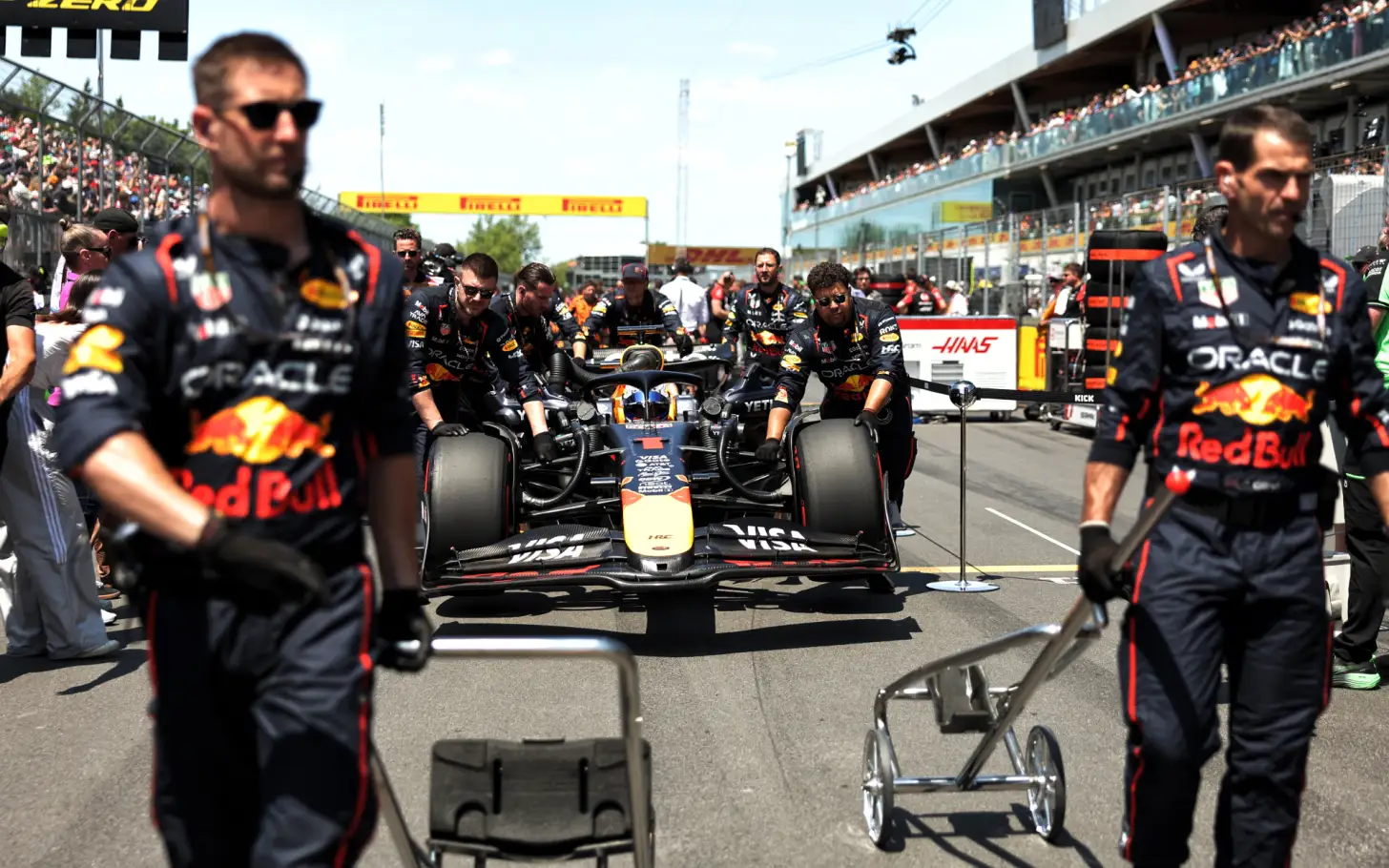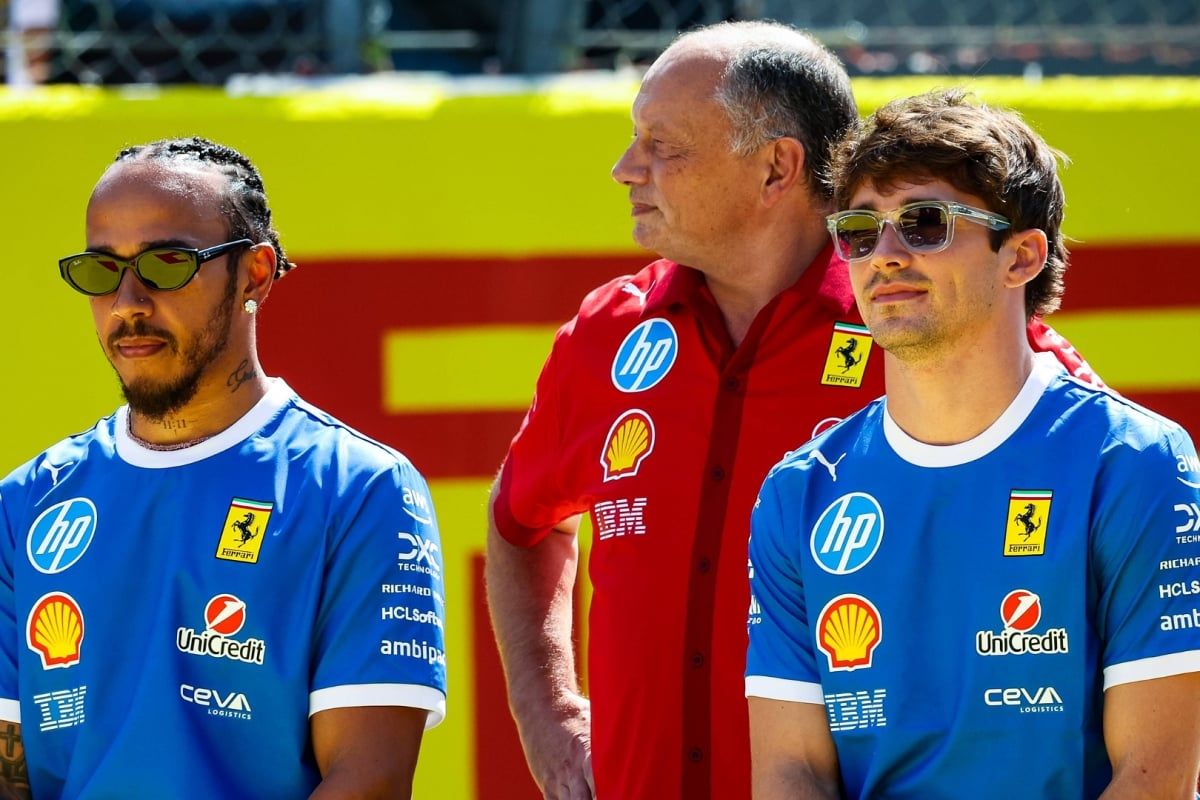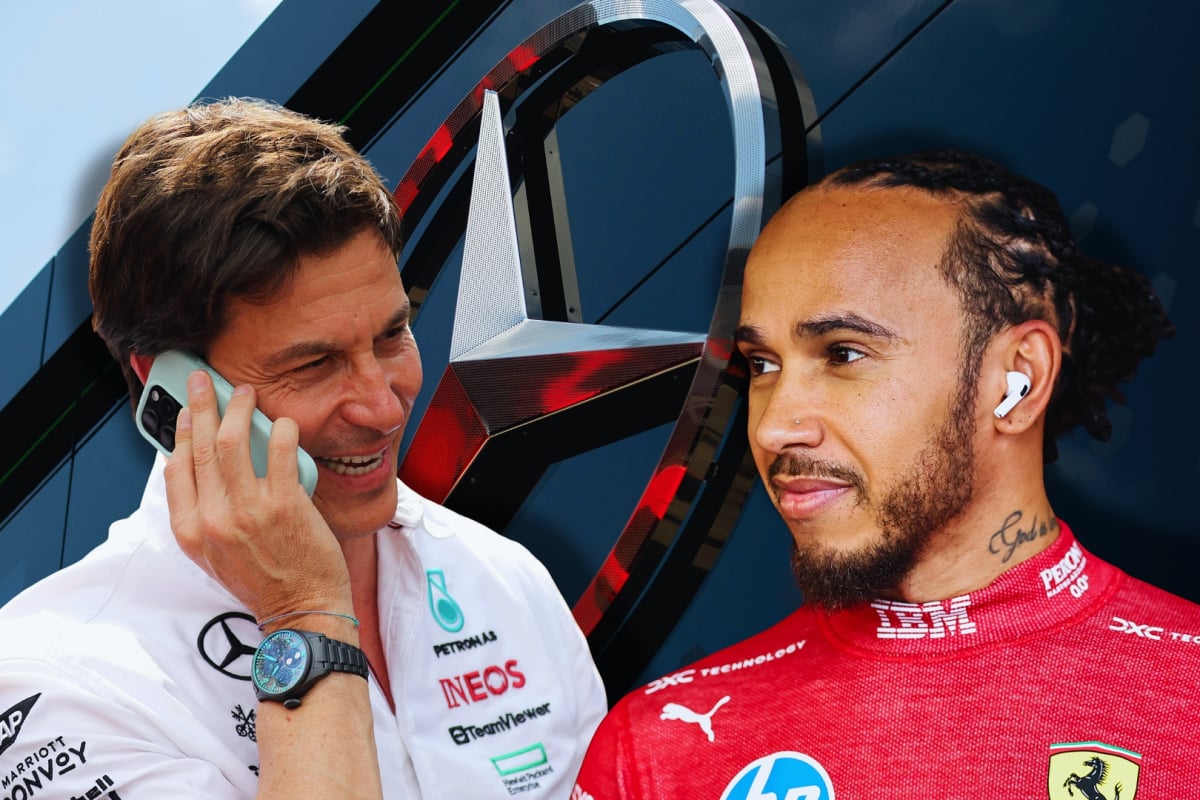Red Bull Slammed for ‘Petty’ Protest Against Russell Following C… read more
Red Bull Racing has found itself under scrutiny following its controversial protest against George Russell after the 2025 Canadian Grand Prix in Montreal, a challenge that was ultimately dismissed by the FIA after hours of deliberation. The protest, which centered around Russell’s behavior behind the safety car late in the race, has been branded as “petty” by former Haas F1 Team Principal Guenther Steiner, who believes it painted Formula 1 in a negative light.
Red Bull launched the protest shortly after the chequered flag fell, questioning two alleged infringements by the Mercedes driver during the final safety car period. The team from Milton Keynes accused Russell of brake testing Max Verstappen and also of falling more than ten car lengths behind the safety car — both of which, if proven, could have triggered a penalty significant enough to alter the race’s final result. The protest filing was formally acknowledged by the FIA stewards at 5:34 p.m. local time (10:34 p.m. BST), and it took over three hours before the decision to reject the protest was handed down at 9:05 p.m. local (2:05 a.m. BST).
The delay in confirming the final race standings drew criticism from fans, commentators, and former team personnel, who felt the uncertainty undermined the sport’s integrity. One of the most vocal critics was Guenther Steiner, who expressed his disappointment during an appearance on the Red Flags podcast. He called the protest an unnecessary move that could have damaged the image of Formula 1, particularly because the incidents in question were relatively inconsequential and did not pose any safety threat or competitive manipulation.
“I think it was petty, because I don’t think it was a game from George under the safety car, the 10 car lengths,” Steiner explained. “I don’t think he was brake testing him, because he [Verstappen] was not behind him. Obviously, Max then overshot and went past him. But it wasn’t a brake test.”
Steiner emphasized that even though he had not seen all the telemetry data, from his experience and the on-track visuals, there was no indication of malicious intent or dangerous driving. He pointed out that had the stewards ruled in favor of Red Bull and issued a penalty to Russell, the consequences would have been far-reaching — not just in the standings, but in the perception of fairness and consistency within the sport.
“For what it is, under the safety car, it’s not something,” Steiner continued. “There was never a danger or anything, in my opinion… If they had given a penalty for this and the race result would have changed, that would have been pretty bad for the sport, and for that, sometimes you have to avoid these things.”
The episode reignited ongoing debates within the F1 community regarding the frequency and timing of post-race protests. While teams have the right to challenge incidents and interpretations of the rulebook, critics argue that such actions should not come at the expense of clarity and the immediate publication of race results. In this case, many fans went to sleep not knowing who officially won the Grand Prix, a situation Steiner and others deemed unacceptable in a modern, global sporting event.
Ultimately, the FIA’s stewards reviewed the data and deemed Russell’s actions legal and non-punishable, ensuring that his victory in Montreal stood uncontested. However, the shadow of the protest has lingered, with some questioning whether Red Bull was strategically attempting to disrupt Mercedes’ momentum or whether the protest was born from genuine concerns over rule enforcement. Regardless of motive, the episode has added another layer of tension to an already intense championship battle and further spotlighted the need for clearer, faster stewarding decisions in Formula 1.




